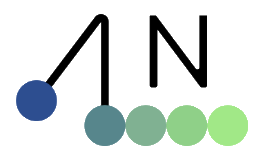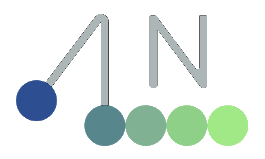warp.sim Migration Guide#
This guide is designed for users seeking to migrate their applications from warp.sim to Newton.
Solvers#
warp.sim |
Newton |
|
|
|
|
|
|
|
|
|
|
Importers#
warp.sim |
Newton |
|
|
|
|
|
|
|
|
The joint-specific arguments to the importers have been removed.
Instead, you can set the default joint properties on a newton.ModelBuilder instance in the newton.ModelBuilder.default_joint_cfg attribute.
For example, limit_lower is now defined using builder.default_joint_cfg.limit_lower, where builder is an instance of newton.ModelBuilder.
Similarly, the shape contact parameters have been removed from the importers.
Instead, you can set the default contact parameters on a newton.ModelBuilder instance in the newton.ModelBuilder.default_shape_cfg object before loading the asset.
For example, ke is now defined using builder.default_shape_cfg.ke, where builder is an instance of newton.ModelBuilder.
The MJCF and URDF importers both have an up_axis argument that defaults to +Z.
All importers will rotate the asset now to match the builder’s up_axis (instead of overwriting the up_axis in the builder, as was the case previously for the USD importer).
The MJCF importer from Warp sim only uses the geom_density defined in the MJCF for sphere and box shapes but ignores these definitions for other shape types (which will receive the default density specified by the density argument to wp.sim.parse_mjcf). The Newton MJCF importer now considers the geom_density for all shape types. This change may yield to different simulation results and may require tuning contact and other simulation parameters to achieve similar results in Newton compared to Warp sim.
Model#
newton.ShapeGeometry.is_solid now is of dtype bool instead of wp.uint8.
The Model.ground attribute and the special ground collision handling have been removed. Instead, you need to manually add a ground plane via newton.ModelBuilder.add_ground_plane().
The attributes related to joint axes now have the same dimension as the joint dofs, which is newton.Model.joint_dof_count.
The Model.joint_axis attribute has been removed since it now equals newton.Model.joint_qd_start.
warp.sim |
Newton |
|
|
|
Removed |
|
|
|
|
|
Removed |
|
|
|
Note: these coefficients are now interpreted as absolute values rather than being scaled by the friction coefficient. |
|
Note: these coefficients are now interpreted as absolute values rather than being scaled by the friction coefficient. |
Forward and Inverse Kinematics#
The signatures of the newton.eval_fk() and newton.eval_ik() functions have been slightly modified to make the mask argument optional:
warp.sim |
Newton |
|
|
|
|
Control#
The newton.Control class now has a newton.Control.joint_f attribute which encodes the generalized force (torque) input to the joints.
In order to match the MuJoCo convention, joint_f now includes the dofs of the free joints as well, so its dimension is newton.Model.joint_dof_count.
The control mode JOINT_MODE_FORCE has been removed, since it is now realized by setting Control.joint_f instead of joint_act.
JointMode has been removed and it is now possible to set both joint target position and velocity simultaneously using the newton.Control.joint_target_pos and newton.Control.joint_target_vel attributes.
The newton.Control class now has a newton.Control.joint_target attribute (in place of the previous joint_act attribute) that encodes either the position or the velocity target for the control,
depending on the control mode selected for the joint dof.
Using joints with zero stiffness (newton.ModelBuilder.JointDofConfig.target_ke) and damping (newton.ModelBuilder.JointDofConfig.target_kd) will disable the target control.
Note
newton.Control.joint_target is likely a temporary attribute and may be removed in a future release in favor of a more general actuation interface.
ModelBuilder#
The default up axis of the builder is now Z instead of Y.
Analogously, the geometry types plane, capsule, cylinder, and cone now have their up axis set to the Z axis instead of Y by default.
warp.sim |
Newton |
|
|
|
|
|
|
|
|
|
|
|
|
|
It is now possible to set the up axis of the builder using the up_axis attribute,
which can be defined from any value compatible with the AxisType alias.
newton.ModelBuilder.up_vector is now a read-only property computed from newton.ModelBuilder.up_axis.
The ModelBuilder.add_joint_*() functions now use None as default args values to be filled in by the ModelBuilder.default_joint_* attributes.
The ModelBuilder.add_joint*() methods no longer accept linear_compliance and angular_compliance arguments
and the Model no longer stores them as attributes.
Instead, you can pass them as arguments to the newton.solvers.SolverXPBD constructor. Note that now these values
apply to all joints and cannot be set individually per joint anymore. So far we have not found applications that require
per-joint compliance settings and have decided to remove this feature for memory efficiency.
The newton.ModelBuilder.add_joint_free() method now initializes the positional dofs of the free joint with the child body’s transform (body_q).
The universal and compound joints have been removed in favor of the more general D6 joint.
Renderers#
warp.sim |
Newton |
|
|
|

